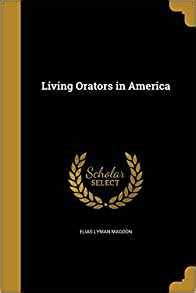A Quote by Bertrand Russell
It appeared to me that the dignity of which human existence is capable is not attainable by devotion to the mechanism of life , and that unless contemplation of eternal things is preserved, mankind will become no better than well-fed pigs.
Related Quotes
If life is to be fully human it must serve some end which seems, in some sense, outside human life, some end which is impersonal and above mankind, such as God or truth or beauty. Those who best promote life do not have life for their purpose. They aim rather at what seems like a gradual incarnation, a bringing into our human existence of something eternal, something that appears to imagination to live in a heaven remote from strife and failure and the devouring jaws of Time.
Love is fed by the imagination, by which we become wiser than we know, better than we feel, nobler than we are: by which we can see life as a whole, by which and by which alone we can understand others in their real and their ideal relation. Only what is fine, and finely conceived can feed love. But anything will feed hate.
But the dignity of human life is unbreakably linked to the existence of the personal-infinite God. It is because there is a personal-infinite God who has made men and women in His own image that they have a unique dignity of life as human beings. Human life then is filled with dignity, and the state and humanistically oriented law have no right and no authority to take human life arbitrarily in the way it is being taken.
The human condition comprehends more than the condition under which life has been given to man. Men are conditioned beings because everything they come in contact with turns immediately into a condition of their existence. The world in which the vita activa spends itself consists of things produced by human activities; but the things that owe their existence exclusively to men nevertheless constantly condition their human makers.
There can be no reproach to pain unless we assume human dignity, there is no reason for restraints on pleasure unless we assume human worth, there is no legitimacy to monotony unless we assume a greater purpose to life, there is no purpose to life unless we assume design, death has no significance unless we seek what is everlasting.
Each thing that exists remains forever, and that very existence of existence is proof of its eternity. But without that realization, which is the knowledge of perfect being, man would never know whether there was existence or non-existence. If eternal existence is altered, then it must become more beautiful; and if it disappears, it must return with more sublime image; and if it sleeps, it must dream of a better awakening, for it is ever greater upon its rebirth.
There are times when I, without willing it, mount to the height of contemplation; with my will I am drawn down from it because of the limitations of human nature and [find] safety in abasement. I know many things that are unknown to most men, yet I am more ignorant than all others. I rejoice because Christ, 'whom I have believed' (II Tim. 1:12), has bestowed on me an eternal and unshakable kingdom, yet I constantly weep as one who is unworthy of that which is above, and I cease not.
In a world in which there is so much to interest, so much to enjoy, and so much also to correct and improve, everyone who has this moderate amount of moral and intellectual requisites is capable of an existence which may be called enviable; and unless such a person, through bad laws, or subjection to the will of others, is denied the liberty to use the sources of happiness within his reach, he will not fail to find the enviable existence
You can't drive through Iowa and not think about farming: No less than 85 percent of the land in the state is devoted to farms, many of them more than 1,000 acres. This is the place where seeds are sown. It's where farmers grow the corn that will be fed to pigs as grain or fed to you as syrup or fermented to ethanol for your gas tank.
It is one of the great ironies of human history that some mortals with incorrect understanding of God and life's purposes sometimes scold God because of the abundance of human misery and suffering-which, indeed, lies all about us. Such individuals almost dare God to demonstrate His existence by straightening things out-and at once! But He is a much different kind of Father than that. Surely it is requisite to eternal life that we come to know God and Jesus Christ whom He has sent (see John 17:3).


































